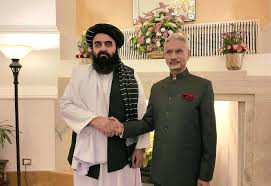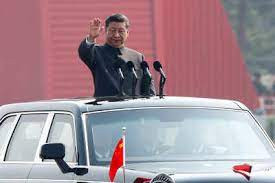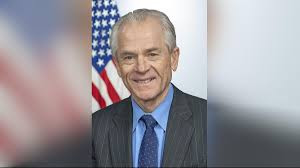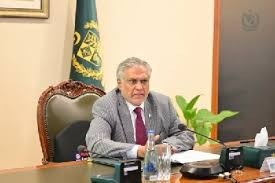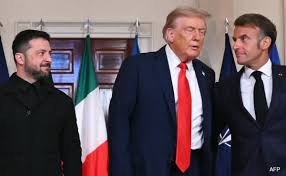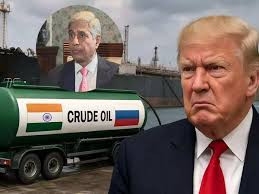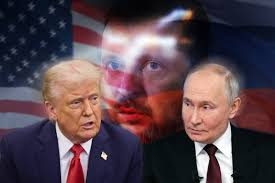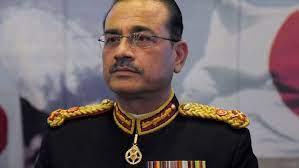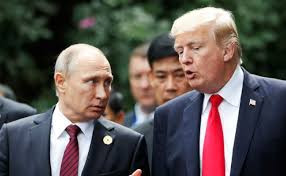Trump Exits G-7 Early Amid Rising Iran Tensions: Speculation Grows Over Possible US Strike on Nuclear Site
IIE DIGITAL DESK : Former U.S. President Donald Trump made a dramatic early departure from the ongoing G-7 summit, sparking a wave of speculation across global diplomatic and intelligence circles. Sources suggest that the sudden exit may be linked to an imminent U.S. military operation targeting an alleged Iranian nuclear bomb-making facility, with reports pointing to the possible use of advanced bunker-buster munitions.
The G-7 summit had been addressing key issues including global security, economic recovery, climate change, and the escalating geopolitical crisis in West Asia. Trump’s departure caught several leaders off guard, with some abruptly cancelling bilateral meetings scheduled with the former U.S. leader. Though no official explanation was provided, insiders believe the move signals the possibility of an aggressive shift in Washington’s Iran policy.
Tensions between the United States and Iran have been simmering for months, but recent intelligence suggesting renewed uranium enrichment and deep-underground facility construction in Iran has raised serious alarm. Reports from defense analysts and leaks from Western intelligence sources indicate the U.S. may be preparing a high-precision airstrike aimed at disabling Iran’s nuclear capabilities.
The rumored use of "bunker-buster" bombs—advanced munitions designed to penetrate fortified underground targets—adds fuel to the speculation. Such a strike would mark a significant escalation in the long-standing standoff over Iran's nuclear ambitions. While Iran has maintained that its program is for peaceful purposes, the West has long accused Tehran of covertly pursuing nuclear weapons.
While Trump is not currently in office, he continues to wield significant influence over Republican foreign policy perspectives and maintains deep links with certain factions within the Pentagon and intelligence agencies. His sudden withdrawal from a high-level diplomatic event like the G-7 summit has thus raised concerns not only among global leaders but also within U.S. political and defense circles.
Political commentators note that Trump's exit comes at a time when diplomatic avenues appear to be narrowing. The current U.S. administration has been walking a delicate line, pushing for restraint while also warning Tehran of severe consequences for any further provocations in the region. Trump’s hawkish stance on Iran during his presidency—especially the withdrawal from the Iran nuclear deal and the killing of General Qasem Soleimani in 2020—remains a key reference point in analyzing his current actions.
Tehran has responded with strong rhetoric. Iranian state media criticized what it described as “war-mongering theatrics” and warned of "severe retaliation" should any attack occur on its soil. Iranian officials also claimed that their nuclear facilities are “fully protected” and that the country is “ready for all scenarios.”
Back in Washington, the White House has not confirmed or denied the possibility of military action. However, National Security Council sources did admit that “all options remain on the table” to prevent Iran from acquiring nuclear weapons capability. Meanwhile, diplomatic sources have confirmed that several Middle Eastern embassies in Europe and the U.S. have received classified briefings indicating heightened alert.
International reactions have been mixed. European G-7 members expressed concern over the potential fallout of any military strike in the Gulf, fearing regional instability, oil price shocks, and a fresh refugee crisis. Israel, on the other hand, has welcomed the reports, with officials suggesting that decisive action is overdue.
The coming days are expected to be critical. If the speculation surrounding a U.S. bunker-buster strike proves true, the world could be on the cusp of a major military and diplomatic upheaval in the Middle East. Until official confirmation emerges, the abrupt G-7 exit by Donald Trump remains a symbol of deepening uncertainty and the high stakes involved in the evolving Iran crisis.
As the world watches closely, all eyes remain on Washington and Tehran—two capitals with the power to determine whether the path ahead leads to diplomacy or disaster.
You might also like!


